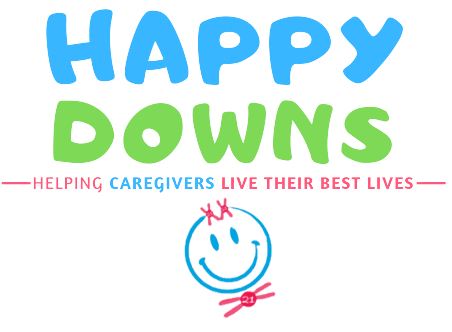This post contains affiliate links. This means that if you click on a link in this post, we may be compensated, at no extra cost to you. Please see our Terms of Use & Privacy Policy for full details.
Welcome back! This is Part 2 of our 3-Part series, where we look at the initial steps that caregivers can take to change their financial situation. Last week we learnt the importance of knowing exactly where you are financially. Presently, you should have one week’s worth of data showing how you spend your money. As you continue to collect more data, you will see the areas in your life that take your money and you will also be able to see just how much money you actually need to cover all your present needs.
Becoming Financially Literate is a Must!
Once you know your financial standing, how do you now improve your situation? Well, first thing’s first…you must admit and accept that obviously there are things that you do not know…because if you knew everything, then obviously you wouldn’t be struggling financially…and there are people who are doing well financially…so there must be something that those folks know that you clearly don’t. Thus, getting educated about money is a must…you must become financially literate in order to change your finances.
Let me just pause here to make a public service announcement (PSA):
- Learning anything new can be difficult, especially when you have to unlearn what you were taught before (because it was crap) to now learn the correct thing.
- You will have to put in hard work and effort to change your life.
- You will have to become a different person to come out of your financial stress, because the ugly truth is, you are exactly where you are supposed to be based on your life choices thus far. Yes, you may have been ignorant of a lot of things and didn’t know that there were better ways and better choices to be made…but that still does not change the fact that you are where you are based on your choices.
The good news is that now you are making a choice to learn about a new way of looking at your finances. You have realized that life cannot be just about working yourself to death and living paycheck to paycheck. You have decided to seek out knowledge to help you change this narrative. You are putting an end to the cycle of financial stress…CONGRATULATIONS. Most people know something’s wrong but do nothing about it, because the dysfunction is comfortable to them and they rather stay in what is comfortable and what they know, rather than to step out into the unknown, because of fear.
So, be very clear…there is no “get rich quick” scheme. What lies ahead of you is hard work, eliminating bad habits and replacing them with new ones that contribute to you achieving your goals.
Back To This Thing Called Financial Literacy
So, how does one get educated about money? Thankfully we are in the age of information and technology, thus there are many sources of information available. You will have to take the time and read books about money, watch YouTube videos, take free courses (MOOC – Massive Open Online Courses), and speak to persons who are successful. Here are some points that will jump out at you as you learn about money:
- If money is needed to pay for almost everything, then why is money not a subject in school?
Why are we not trained from an early age how to make, keep and grow our money instead of how to find a job, spend all our money on bills and thus, have no money to invest for growth, thus keeping us trapped in the cycle of having to go to a job we hate?
- Did you know that the wealthy do not subscribe to having a safe secure job? The wealthy believe in having their money work for them so that they can spend time with their families.
By the way, what’s safe about a job when they can decide to fire you at any moment?
- Savers are losers. You need to invest your money. Investing is basically your money having children of its own and then grandchildren and great-grandchildren, etc.
Your currency loses value as it is no longer backed by gold (an actual tangible thing that has value), thus, saving is not the best option. Having your money multiply is the better option.
- Passive Income – Imagine not having to be physically present, like you are at your current job, in order to make money. You put in the work and set up your system and then after that, you generate income even though you are not “reporting to work” every day.
It doesn’t get better than this! For example, persons can set up a niche website and earn income from that site for years to come; persons can buy stocks in a company and earn dividend payments; persons can buy a property and rent it.
- Financial Freedom – This means that without having to be employed or dependent on others, you generate enough income from your passive income stream(s) to cover your living expenses for the rest of your life.
Doesn’t this sound fantastic?
- Taxes – Did you know that depending on the country you are in, the government will reward you for starting certain businesses? For example, in certain countries, if you start a business in the agriculture or tourism sector, you pay no income tax.
If you are business minded, it is very important that you learn about the taxes that relate to your business, as there are ways that you can legally pay little to no taxes…that’s more money that your business gets to keep.
- Assets put money in your pocket, Liabilities take money out of your pocket. Thus, your house and car are not assets unless they generate more money than they cost (maintenance included).
Resources To Get You Started
The above-mentioned points are just the tip of the iceberg. Here are some resources that will prove helpful as you start your journey to financial freedom.
1) Jim Rohn’s YouTube Video about Personal Development
Now this video does not directly address finances, but I think it is important that you understand how your perspective on life, yourself and personal development can impact the decisions you make.
2) The book, “Rich Dad, Poor Dad” by Robert Kiyosaki
Most persons have heard of this book and some may have read it. This book opens your eyes to how money is viewed by the wealthy. You will find yourself asking, “How did I not know these things sooner?”.
3) Investopedia
As the name suggests, it’s your one-stop encyclopedia on all things relating to investments. This website does a good job of explaining many of the financial terms that are so foreign to many of us, e.g., what is equity?
4) The book, “Cashflow Quadrant” by Robert Kiyosaki
This book helps you to see the difference amongst employees, the self-employed, business owners and investors. After reading this book, you will realize which side of the quadrant is best suited for you.
5) The book, “The Creature from Jekyll Island” by G. Edward Griffin
Where does money come from? Where does it go? Who makes it? All these questions and more are answered in this book.
6) Moneyspire
This is a user-friendly personal finance software that helps you to track your money as well as budget.
7) Free Online Courses
Many free online courses are available on the following platforms:
You can search for courses relating to money, finances, business, economics, entrepreneurship, etc. Explore and see what works for you.
Knowledge is Power
Not really…I believe that the use of knowledge is where the actual power is. So, gain as much knowledge as you can, but ensure that you actually put what you have learnt into practice. Just knowing is not enough…ACT!
Join us next week, same time, for the 3rd and final part in our series, where we will explore a variety of wealth creation vehicles.






Great to read the second part of this series. You’re so right, knowledge really is power and investing for your own future and for that of your dependents is absolutely vital. I had not come across the books you mention but they look interesting so I will seek them out to improve my knowledge. Thanks for sharing and I look forward to part 3.
Hello drinkteahub,
Thank you for visiting HappyDowns and for taking the time to explore our financial mini-series. Very happy to know that some of the listed resources sparked your interest. I hope that they will prove useful.
Cheers to your finances!
I’ve always been a little disorganized with money and have been learning over the years to be more organized and financially savvy. Yes it is very true that the house a person lives in or one’s car are not assets since they do not generate any cash flow. Robert Kiyosaki’s books and training are amazing, I’ve learnt so much with him over the years. It has truly changed the way I think about money!
Investopedia has a Stock simulator and a lot of training, thank you for referring them. I plan on getting started with Investopedia. I also like the SmartAboutMoney site, I’m hoping to get my daughter started here to better understand spending and saving!
Hi Padma,
It’s great to hear that you agree that these resources are indeed helpful. Definitely, getting financially educated will change one’s life for the better. I wish you and your daughter all the success in the world!
Cheers!